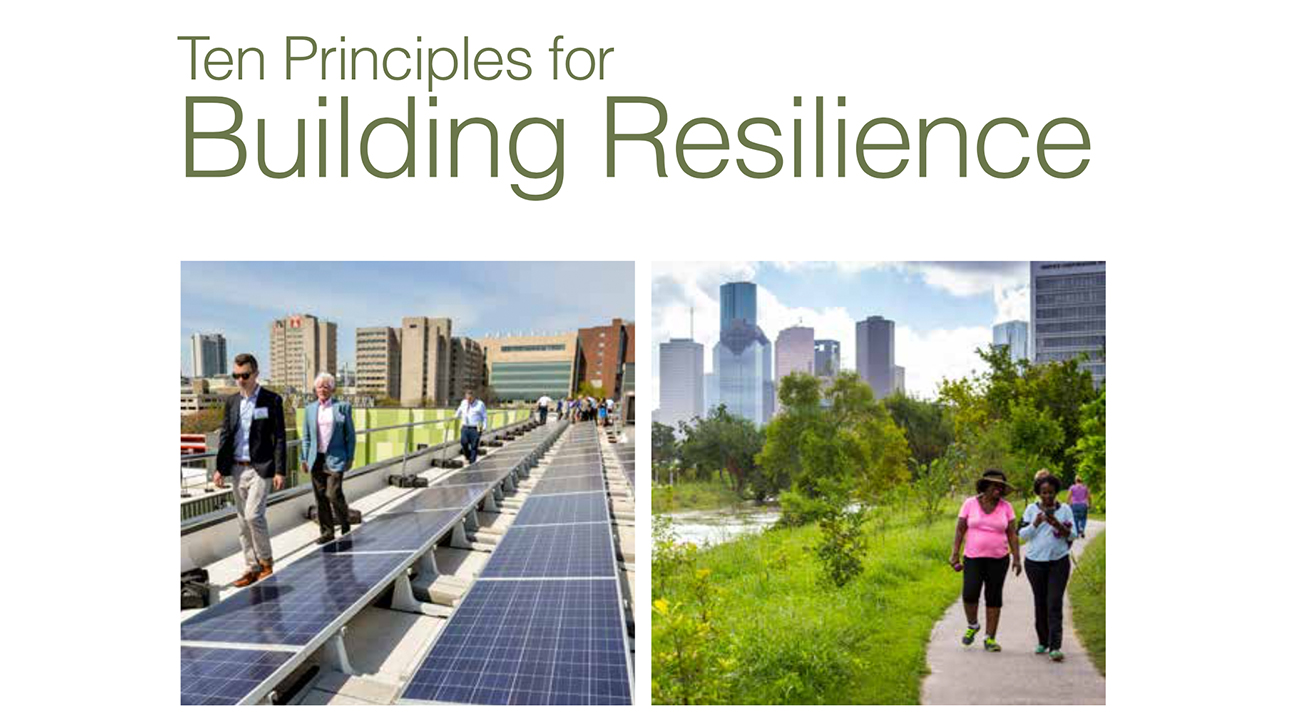Ten Principles for Building Resilience

The report considers the economic, environmental, and social factors that contribute to resilience, and how the concept of resilience translates to the private sector, municipal decision-makers, and communities. It equips ULI members, city officials, city leaders, and the public to address vulnerabilities and enhance resilience as relevant to their communities, real estate projects, and broader civic involvement.
This report was developed through a ULI member workshop in summer 2017 that included 15 ULI member leaders who had served on resilience-focused Advisory Services panels and other Urban Resilience program activities over the past four years. The members attending the workshop formulated the ten principles, which are illustrated in the report with on-the-ground examples from Advisory Services panels or technical assistance panels.
Report Summary: This report summarizes the key themes posed by ULI’s resilience work in the years since Hurricane Sandy, with a particular focus on ULI’s resilience-focused Advisory Services work. ULI has a long history of helping communities respond to the rebuilding challenges posed by disasters, as well as helping them determine strategies for more resilient land use and development approaches in advance of disasters.
The report considers the economic, environmental, and social factors that contribute to resilience, and how the concept of resilience translates to the private sector, municipal decision-makers, and communities. It equips ULI members, city officials, city leaders, and the public to address vulnerabilities and enhance resilience as relevant to their communities, real estate projects, and broader civic involvement.
This report was developed through a ULI member workshop in summer 2017 that included 15 ULI member leaders who had served on resilience-focused Advisory Services panels and other Urban Resilience program activities over the past four years. The members attending the workshop formulated the ten principles, which are illustrated in the report with on-the-ground examples from Advisory Services panels or technical assistance panels.


